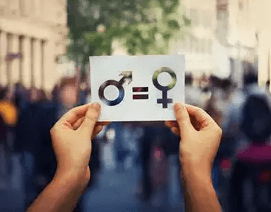SC Handbook on Gender Stereotypes
Chief Justice of India, DY Chandrachud, has released a 30-page handbook aiming to address gender stereotypes in judicial discourse. The handbook, intended for judges and legal practitioners, highlights the significance of using gender-neutral and accurate language in legal proceedings. It emphasizes that using outdated language and stereotypes hampers the progress of equality rights envisioned by India’s Constitution.
The handbook cites examples of problematic language used in judgments, such as mischaracterizing women’s roles and experiences. It suggests alternative terminology that respects the dignity and rights of all individuals, irrespective of gender. The publication acknowledges that language shapes perceptions of society and reflects the values of the law, advocating for the transformative power of accurate and unbiased language.
Why did Chief Justice DY Chandrachud release the handbook?
Chief Justice DY Chandrachud released the handbook to address and rectify gender stereotypes present in judicial discourse. The goal is to promote equal rights for all individuals regardless of their gender, emphasizing the need for accurate and respectful language in legal proceedings.
What is the primary purpose of the SC handbook?
The handbook aims to assist judges and legal practitioners in recognizing, understanding, and eliminating gender stereotypes from judicial discourse. It educates them about the significance of language in shaping perceptions and enforcing constitutional values of equality.
Why is accurate language use important in legal proceedings?
Accurate language use is crucial in legal proceedings as it reflects a judge’s interpretation of the law and their perception of society. The handbook contends that even when stereotypes don’t impact case outcomes, they can perpetuate ideas contrary to constitutional values and reinforce gender biases.
How does the handbook suggest addressing stereotype-promoting language?
The handbook identifies problematic terms and phrases that reinforce gender stereotypes, such as “career woman” or “easy virtue.” It recommends alternative language that respects individual dignity, like using “woman” instead of derogatory labels, and emphasizes neutral terminology for describing emotional states.
What role does language play in law and society?
Language is essential in law and society as it conveys the values and intentions of lawmakers and judges. The handbook asserts that language shapes public perception and can either uphold or undermine constitutional principles, highlighting the need for accurate language in legal discourse.
Have other countries undertaken similar initiatives to combat stereotypes in law?
Yes, other countries have initiated efforts to address stereotypes in the legal system. The Women’s Court of Canada writes “shadow judgments” to scrutinize equality law, and in India, the Indian Feminist Judgement Project critiques judgments from a feminist perspective to promote equitable interpretations.
Month: Current Affairs - August, 2023
Category: India Nation & States Current Affairs • Legal & Constitution Current Affairs







